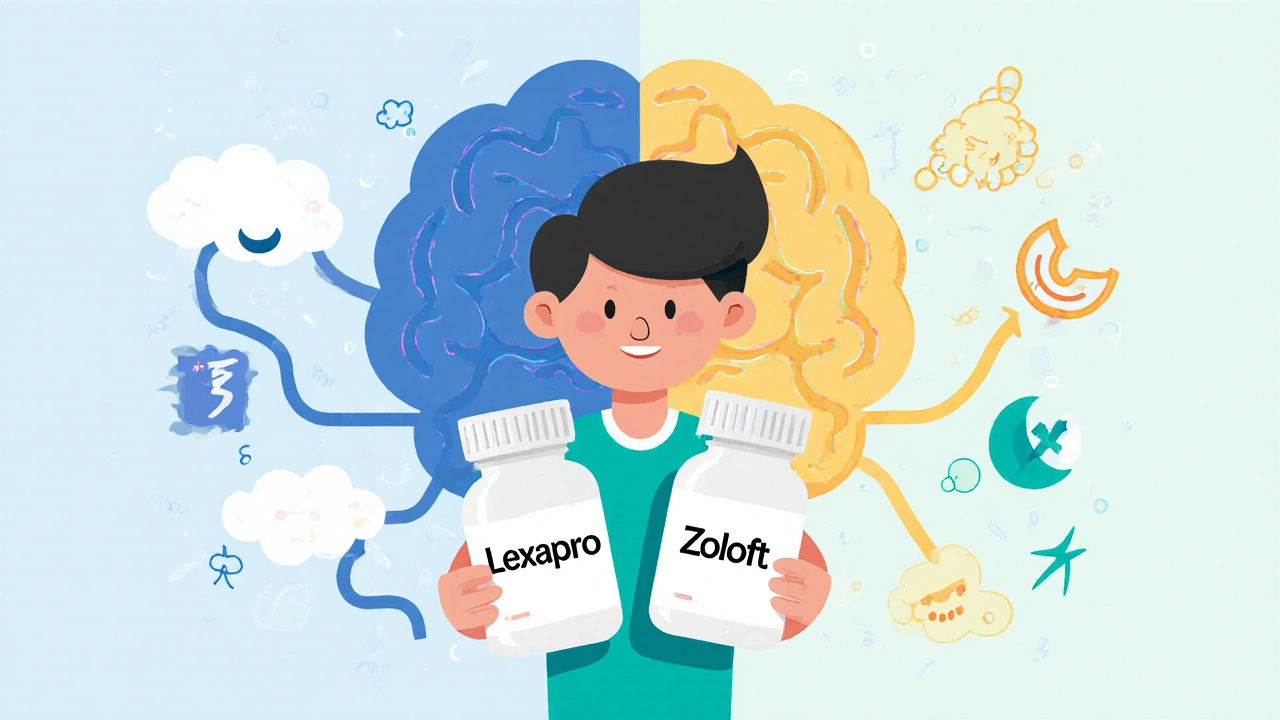Escitalopram: What It Is, How It Works, and What Alternatives Exist
When you hear Escitalopram, a selective serotonin reuptake inhibitor (SSRI) used to treat depression and generalized anxiety disorder. Also known as Lexapro, it works by increasing serotonin levels in the brain to help stabilize mood. Unlike older antidepressants, Escitalopram is often chosen because it’s well-tolerated, with fewer side effects for most people. It’s not a quick fix — it usually takes 4 to 6 weeks to feel the full effect — but for millions, it’s the first step toward feeling like themselves again.
Escitalopram is part of a larger group called SSRIs, a class of antidepressants that target serotonin to improve mood and reduce anxiety. Other SSRIs include fluoxetine (Prozac), sertraline (Zoloft), and citalopram (Celexa). Escitalopram is actually the active part of citalopram, which makes it slightly more potent and cleaner in how it works. That’s why doctors often pick it over older options — it’s more predictable. But it’s not for everyone. Some people experience nausea, insomnia, or sexual side effects. And if you’re on other meds, like NSAIDs or blood thinners, you need to be careful about interactions. One serious risk is serotonin syndrome, a rare but dangerous condition caused by too much serotonin in the body, often from mixing SSRIs with other serotonergic drugs. Symptoms include confusion, rapid heartbeat, and muscle rigidity — if you notice these, get help fast.
Not everyone responds to Escitalopram. Some people need to try a few different SSRIs before finding one that fits. Others switch to SNRIs like venlafaxine or duloxetine, which also affect norepinephrine. For anxiety-heavy cases, benzodiazepines might be used short-term, but they’re not for long-term use. And if you’re thinking about stopping — don’t quit cold turkey. Drug holidays, planned breaks from antidepressants under medical supervision, can help manage side effects, but only if done right. Many of the posts here cover similar themes: how medications interact, what alternatives exist, and how to navigate side effects safely. Whether you’re new to Escitalopram or considering a switch, the guides below give real-world insights from people who’ve been there — and the doctors who’ve helped them.
Compare Lexapro (Escitalopram) with Alternatives: What Works Best for Depression and Anxiety
Compare Lexapro (escitalopram) with other antidepressants like Zoloft, Prozac, and Wellbutrin to find the best alternative for depression and anxiety. Learn how side effects, effectiveness, and interactions differ.
Read More
